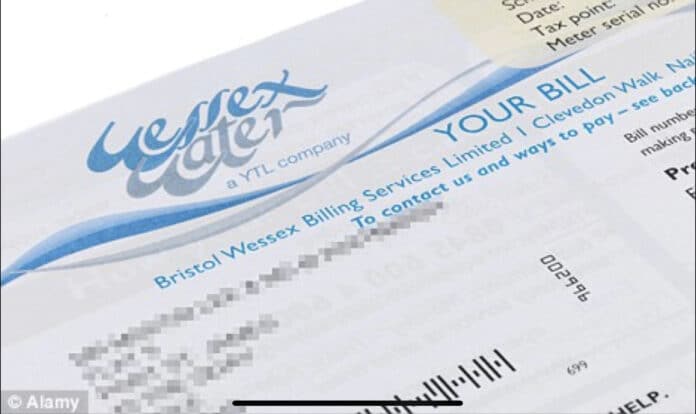Research shows that water corporations have outstanding borrowing of about £54 billion that has accumulated since privatisation, although Ofwat is reluctant to rein in the growing debts that the businesses have racked up.
According to the Competition and Markets Authority, customers spend an average of £80, or 20% of their water bill, toward repaying debt and rewarding shareholders (CMA).
As interest rates climb, worries about the financial soundness of England’s nine major water and sewerage corporations are being raised due to the amount of debt, or gearing, they have accumulated.
Over 70% of the English water sector is owned by foreigners, it has been revealed.
Read on…
According to statistics from the Guardian, the major water and sewerage corporations in England have paid dividends to shareholders, revealing the amount of net debt owned by these companies.
Data from Ofwat shows that they have been maintaining debt to capital value ratios between 60% and more than 80%. To safeguard the public from the effects of a financial collapse brought on by excessive borrowing, the regulator has proposed adding restrictions to the licences of water companies that would limit the amount of debt they might incur. However, Ofwat has thus far rejected the notion.
Dorset Eye reported on Wednesday that multinational investment firms, private equity, banks, the ultra-wealthy, and even entities with tax haven registrations hold more than 70% of all water companies in England.
The government paid off all debts totaling £5 billion when Conservative Prime Minister Margaret Thatcher auctioned up the water sector in 1989 and provided the water companies a further £1.5bn of public money, known as a “green dowry”. As of this year net debt of the main water and sewerage companies was £53.9bn
There hasn’t been much shareholder capital invested from day one. Customers cover all costs.
Karol Yearwood’s groundbreaking research has been updated by David Hall, a visiting professor at the Public Services International Research Unit at Greenwich University. David Hall said the evidence suggested that the high level of gearing was being taken on by the companies to pay dividends rather than to fund investment.
It is considerably different from a more conventional firm structure, where operational costs are covered by customer revenue flows, while capital investments such as those in plant, machinery, and other assets are financed by cash from investors and creditors. Following that, dividends are distributed from the company’s profits as a return on investors’ cash.
Since their inception, the water corporations have received very little shareholder funding. Customers pay for everything, and because their owners are parent firms, the businesses frequently borrow money to pay dividends to themselves.
The amount of debt is creating concern about the financial stability of some water corporations in light of rising interest rates and a problem in the cost of living. According to Ofwat’s most current financial resilience assessment, Anglian, Northumbrian, Severn Trent, Thames, and Southern have interest cover ratios below the 1.6 mark, which denotes a solid credit rating.
A few businesses have been compelled to turn to their shareholders for an urgent infusion of cash. Shareholders injected money into Anglian Water to lower its net debt, in order to protect its credit rating and reduce its debt gearing from 82% to 64.8%.
Additionally, shareholders invested £1.5 billion in Thames Water to strengthen its financial stability.
This summer, Ofwat stated: “We have grown more worried about the impact of some firms’ funding strategies on their long-term financial condition… and how this may influence service to customers. Companies need to fund a turnaround plan or performance improvement in this particular situation.
Water businesses may be placed under special administration by Ofwat in order to safeguard public services. Prof. Robin Mason of the University of Birmingham, however, asserted that under the most severe circumstances, this has never occurred. In a study for the regulator, he used Southern Water as an example and stated: “Underperformance by Southern Water has lasted for the last number of years
Join us in helping to bring reality and decency back by SUBSCRIBING to our Youtube channel:
https://www.youtube.com/channel/UCQ1Ll1ylCg8U19AhNl-NoTg
and SUPPORTING US where you can: Award Winning Independent Citizen Media Needs Your Help. PLEASE SUPPORT US FOR JUST £2 A MONTH







